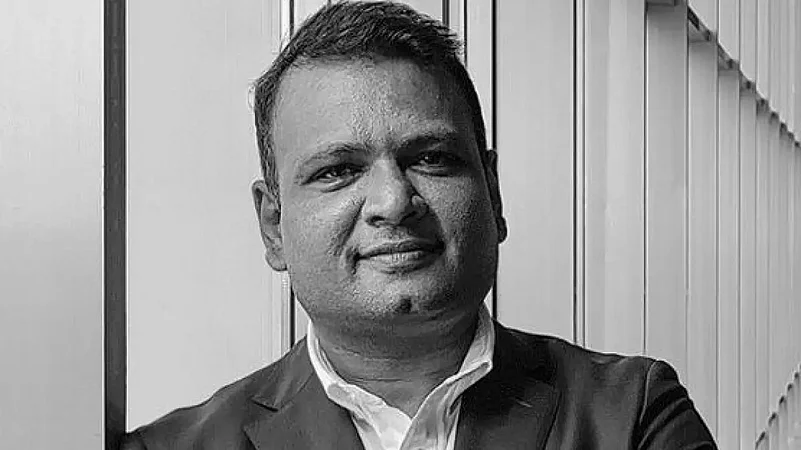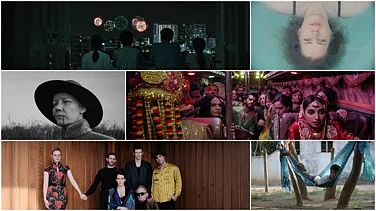Manish Mundra is known for making sensitive films on social issues. In less than ten years, his banner, Drishyam Films has carved a unique niche for itself in Hindi cinema with artistic films like 'Masaan', 'Kadvi Hawa', 'Rukh', 'Newton', 'Aankhon Dekhi', and 'Ramprasad Ki Tehrvi'. Mundra has now donned the director’s hat with 'Siya', a hard-hitting film on the trauma and travails of a rape victim and her family in their bid to seek justice.
In conversation with Giridhar Jha, Mundra talks about his directorial debut and his cinematic journey so far. Edited excerpt:
You have made a very hard-hitting film, ‘Siya’ on a sensitive issue like rape. Did the idea of making it come from a Hathras-like incident?
Filmmaker gets inspiration from society itself. There have been many such horrific incidents of rape in the country in the last few years, which hurt me. I thought that a film should be made on this issue. Although films have been made on rape many times, my attempt is to show the struggle of rape victim and her family in my film, which they have to face when they decide to fight for justice instead of being afraid, keeping silent. How much trouble do they face, what is the price they have to pay? With this thought, I along with my team studied the six cases of rape that happened in the country in the past and its outcome is in front of the audience in the form of Siya now.
What kind of research did you do before making this film?
We took six case studies and found that all had similar patterns. In every case there is a Bahubali (strongman), who has the power and who uses all his power to destroy those who seek justice. After research, we gathered the common elements and gave them the form of the story. We cannot link it to any one particular case, but if we look at five-six cases, we will find the same kind of cycle of events whether it is killing or harassing the victim and her family members or opening old cases against them and putting them in jail. In the midst of all this, the medico-legal-police nexus also comes to the fore. Victims are often frustrated and harassed by long-drawn cases that go on and on due to medical and technical reasons. A rape case is, of course, heard, but it takes many years to reach its conclusion.
Is this the message you want to convey through the film?
The main message of my film is that it is not possible to control crime unless we are united as a society. As long as we keep shirking our responsibility, brutal incidents of rape will continue to happen. There are many occasions in the story of my film, when the initiative of a police officer, or a doctor, could have prevented the incident of rape. But no one discharged their responsibility. Although they were not directly involved in the criminal act themselves, they also became partners-in-crime.
You have made your debut as a director with this film. When and why did you decide to become a director?
The idea of directing a film was in my mind for many years but I was looking for the right opportunity. The writers I initially worked with to develop the idea of the film Siya did not deliver a satisfactory story, so I started writing the script myself and in process I felt that I should direct this film.
Recently you were quoted as saying that a small film does not reach the audience because it does not have big stars. Why do you feel this way?
As a filmmaker, I have seen very closely that glamour films have become dominant in every way in our country. A sensitive film made with a small budget and new actors neither gets an audience nor gets promoted properly. Short films are always missing in the national media, social networking sites, etc. We talk about artistic films made abroad with great interest, but when the same type of film is made in our country, we do not reach the theatre to see it. Then we complain that good films are not made in Hindi cinema. If we want to change, we have to work unitedly. Everyone has to come together. Only then will change come. The audience also has to be aware and cooperate. Only then will the new filmmakers be able to muster the strength to tell the stories of India. If not today, then tomorrow that time will come.
After working in the industry for so nearly a decade, you could have worked with a big star. Why did you choose new actors?
Working with new artists always excites me. I have said this many times that films are offered to only a few artistes in the Hindi film industry. We avoid working with new faces. As a result, the freshness has disappeared from our films. Viewers are tired of seeing the same face and appearance in all kinds of characters. This is the reason why big-budget films with big stars are getting flopped. There is a freshness in Siya because of the way Pooja and Vineet Kumar have worked in the film. It gives energy to the entire team. I firmly believe that this energy will definitely be felt by the audience on the screen.
How do you look back at your journey as a filmmaker so far?
It gives me satisfaction when I look back at my cinematic journey. The reason for this satisfaction is that the kind of work I wanted to do in films, whatever I had to say through films, I have been able to say it without compromising and I am saying it even today. Despite all the temptations, distractions and struggles, I am committed to making good cinema. This is my success. I am glad that I have been able to carve out a niche through Drishyam Films which is known for credible, sensitive and powerful artistic expression.
What are your plans after ‘Siya’?
After the release of ‘Siya’, I will have two more releases lined up in the next one year. In addition, three other films will be produced. Many incidents are happening in the country these days, where women are being burnt to death just because they are refusing to accept the proposal of men. I experience great pain and despair to see such cruelty. I would definitely like to make a meaningful film on this subject in the near future.


























